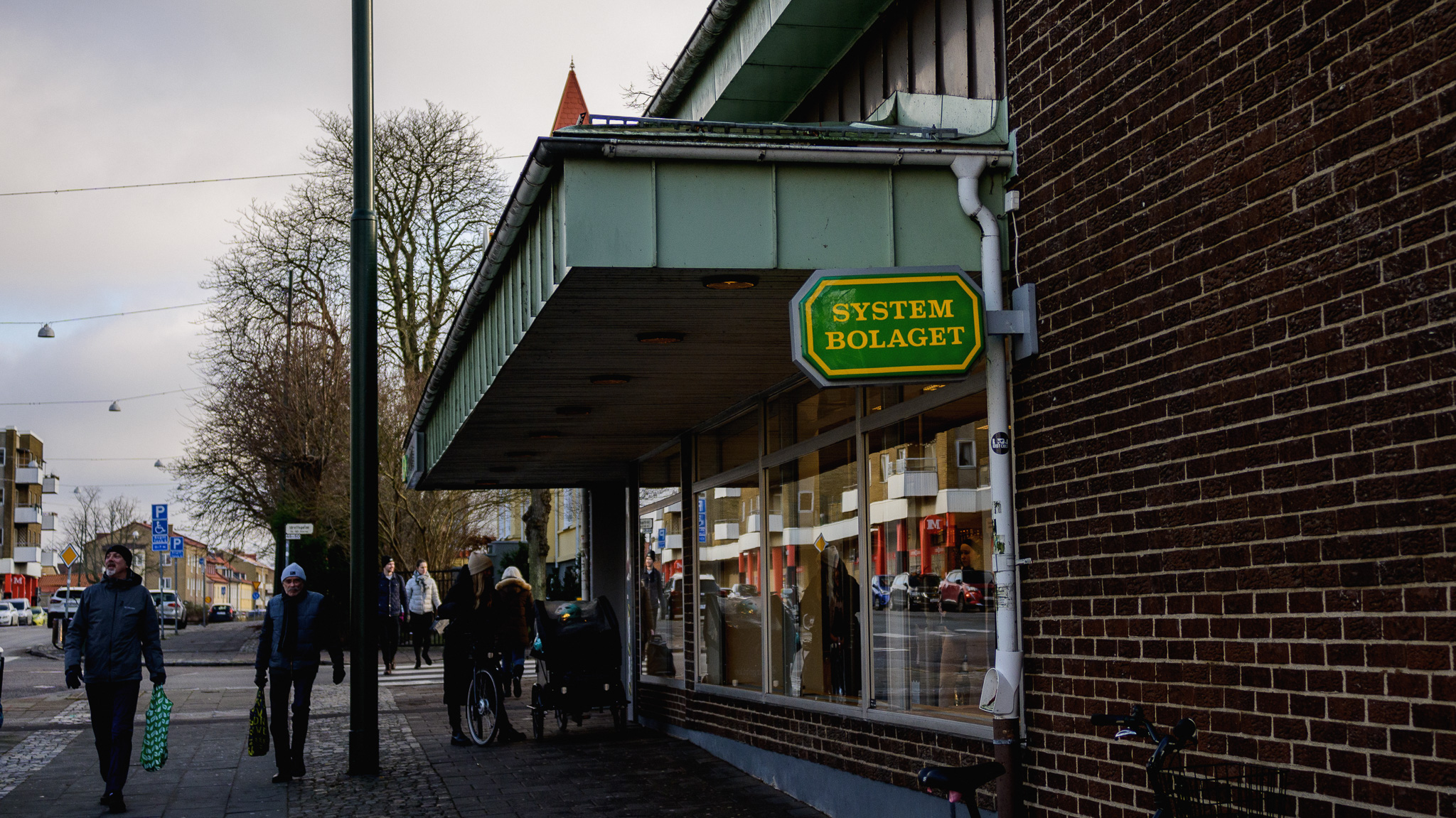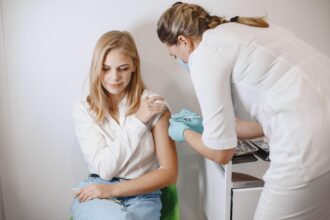Below is the latest information on the COVID-19 in Sweden. Here you’ll find the latest data on restrictions, entry restrictions and recommendations to follow in Sweden during the coronavirus pandemic.
- COVID-19 in Sweden – where to find information?
- COVID-19 is no longer recognized as a social risk
- Travels to Sweden
- Rules for entry to Sweden during the COVID-19 pandemic
- COVID-19 in Sweden – restrictions
- COVID-19 in Sweden – information for residents
- Related entries
COVID-19 in Sweden – where to find information?
I try to publish all changes in this post on a regular basis, but before traveling to Sweden, make sure that the information on the blog is up-to-date. Use the links below:
- folkhalsomyndigheten.se – general information on the website of the Swedish Public Health Agency [ENG]
- krisinformation.se – information on restrictions and entry restrictions at the Crisis Information Center [ENG]
- gov.pl – information for Poles traveling to Sweden on the government website [PL]

COVID-19 is no longer recognized as a social risk
From 1st April 2022, COVID-19 in Sweden is. ceased to be recognized as a threat to society, and therefore all restrictions, entry restrictions and other regulations that were in force before were lifted. Three recommendations remain in effect:
- Get vaccinated if you can – it is recommended that everyone over the age of 12 be vaccinated against COVID-19, reducing the risk of serious illness and death.
- Stay home if you have symptoms – Anyone showing COVID-19 symptoms should stay home and avoid close contact with other people (unofficially it is assumed that it takes two asymptomatic days to return to safe interpersonal contacts).
- If you are not vaccinated, take care of yourself and avoid any risks – not having the vaccine increases your risk of becoming seriously ill with COVID-19. To avoid infection, people who are not vaccinated should be especially careful and avoid crowded rooms where possible. The recommendation applies to adults.
Travels to Sweden
You can travel to Sweden without any restrictions without presenting any additional documents regarding your health condition or vaccination certificates.
January 2023: Entry restrictions for those who are traveling from China
Between 7th and 28th January, there is temporary travel restriction from people traveling from China. All passengers are required to present negative COVID-19 test in order to cross the Swedish border. This applies to all in age 12 or above with some exceptions:
- people with residents permit in Sweden;
- long-term residents of EU/EEA country;
- travellers with important family reasons;
- Swedish citizens.
Rules for entry to Sweden during the COVID-19 pandemic
Since 9th February 2022, all restrictions on entry to Sweden by people traveling from EU / EEA countries were lifted. The following information applies to vaccinated, unvaccinated and convalescent people, children, professional drivers and transit travelers:
No test required prior to arrival.No test required upon arrival.No requirement to quarantine / isolate upon arrival.No requirement to complete a localization form.
Until 31st March 2022 entering Sweden by people from outside the EU / EEA is still banned, but some travelers may be exempted from this by showing:
EU COVID Certificate;Negative test done 72 hours before arrival at the earliest;Complete vaccination certificate from an approved country.
Traveling to Sweden from outside the EU / EEA – COVID-19 in Sweden
Exceptions – no entry ban and no COVID certificate
The following people are exempt from both the Swedish entry ban and the COVID certificate:
Swedish citizens;Citizens of other countries living in Sweden (with a valid residence permit);Citizens of other countries with important and urgent family reasons;People working in the transport industry;People in need of international protection (e.g. asylum seekers) or with other humanitarian needs;Seamen;Diplomats, consuls employed in Sweden by other countries together with family and staff members;People invited by the Government.
Exceptions – no entry ban, the need to show a COVID certificate
The following people are exempt from the entry ban to Sweden, but upon arrival are required to present a valid COVID certificate (EU COVID Certificate, negative test result 72 hours before arrival, full vaccination certificate from another approved country):
Citizens of another EEA country, Switzerland, Andorra, Monaco, San Marino or the Vatican;Permanent residents of another EEA country;Other EEA country residence permit holders;UK citizens who hold or have applied for resident status;People with a residence permit or the right to reside in another EEA country, holders of a national visa (class D) to Sweden or a national visa (class D) valid for more than three months in another EEA country, Andorra, Monaco, San Marino, Switzerland or the Vatican;People with documented family ties, such as: a spouse, cohabitant, partner or child under 18 years of age, with a Swedish citizen, EEA citizen or foreigner with a residence permit, residence status or national visa (class D) in Sweden or the EEA;Foreigners who live in one of the exempt countries or are fully vaccinated in an approved country.
COVID-19 in Sweden – restrictions
On 9th February 2022, all restrictions related to the coronavirus pandemic in Sweden were lifted.. There are no restrictions on gatherings, mass events, opening hours of shops and premises. There is no obligation to wear masks – both indoors and outdoors.
Hand disinfection stations are available for visitors in public places. Many venues report rush hour and recommend visiting during less crowded times.
The government introduces the following recommendations:
- Get vaccinated if you can – it is recommended that everyone over the age of 12 be vaccinated against COVID-19, reducing the risk of serious illness and death.
- Stay home if you have symptoms – Anyone showing COVID-19 symptoms should stay home and avoid close contact with other people (unofficially it is assumed that it takes two asymptomatic days to return to safe interpersonal contacts).
- If you are unvaccinated, follow the special instructions – if you do not receive the vaccine, you risk getting seriously ill with COVID-19. To avoid infection, people who are not vaccinated should be especially careful and avoid crowded rooms where possible. The recommendation applies to adults.
Additionally, the priority testing recommendations have been changed. Since 9th February 2022, it is recommended to regularly test only patients, carers of the elderly and medical staff.
COVID-19 in Sweden – information for residents
Travel restrictions
If you live permanently in Sweden and can document this (for example with a personbevis downloaded from the Skatteverket website), you do not need to present COVID-19 related documents when traveling to Sweden, regardless of the country of departure. There are still valid documents necessary to cross the border – passport or ID card.
Vaccinations
All residents of Sweden have the opportunity to vaccinate against COVID-19 free of charge. It is recommended that you have three doses of the vaccine, even if you have had COVID-19 in the past. At the moment, there is no queue for receiving the vaccine by adults. Vaccinations from Pfizer and Moderna are used in Sweden.
- Children above 12 years old can get the COVID-19 vaccine. In special cases, vaccination is also recommended for children over 5 years of age.
- Pregnant women can have the vaccine, and the first dose is recommended after 12. pregnancy week.
- The third dose is available to all adults who have received the full COVID-19 vaccination within three months of the second dose.
- The fourth dose is available to people with reduced immunity within 3 months of taking the third dose, especially to people over 80 years of age, receiving home care, living in special homes for the elderly.
For more information, visit krisinformation.se (in English).
Date of the last update: 20/01/2023 | Main photo: lilzidesigns from Unsplash




![COVID-19 in Sweden - the latest restrictions [January 2023] – LikeSweden](https://likesweden.com/wp-content/uploads/2022/02/Szwecja-scaled-1.jpg)










